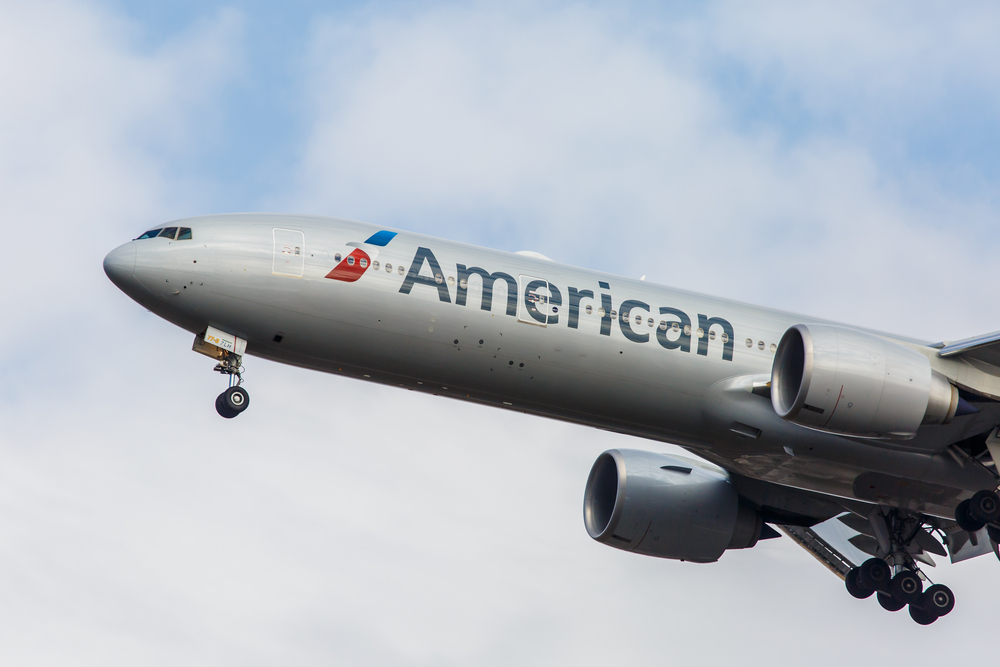Here’s How I Think American Airlines Should Change Their Fare Structure

The president of American Airlines, Scott Kirby had a few choice comments during their recent earnings conference call that frequent fliers need to pay attention to.
From those comments, it’s pretty clear that American Airlines is planning to introduce new fares that will strip out some of the current benefits included. What benefits? Well, consider things like seat selection and AAdvantage miles, for starters. More restrictive change/cancellation policies and the inability for elite members to upgrade are things that could be in the mix as well.
Keep in mind this only for non-stop routes. If I’m flying IAD-DFW-DEN and AA offers a bargain basement fare to compete with Frontier or Spirit on DFW-DEN, that shouldn’t affect me as a connecting passenger. I likely never see that fare displayed at AA or through a GDS.
It’s also worth noting that I’m a top-tier Executive Platinum member of the American Airlines program, and that might inject some bias here. But, I do think I’m looking at this from the perspective of the airline on how best to balance cost of these benefits and “stickiness” of loyal customers.
Delta offers a stripped down product now, called “Basic Economy”. Those fares award mileage to loyalty program members but don’t allow elite members to select a seat or receive an upgrade to the next class of service.
There are a whole slew of ways that American Airlines could choose to structure the product. The goal is to save money on those passengers who are flying truly on price and nothing else. Recapping the list of things they could consider changing:
- No seat selection.
- Reduced/eliminated mileage accrual, including elite-qualifying miles and points.
- More restrictive change policies.
- No upgrades for elite members.
If I were the one making the decisions, I think I would have two paths for seat selection. I would allow elite members to select a seat but would not allow non-elite customers to select a seat without paying.
I wouldn’t touch regular mileage accrual. Even for those customers that fly the airline once a year, issuing them miles is a winning proposition. If they don’t redeem the miles, the cost to award them was very close to zero (they’ll expire after 18 months of inactivity).
But, if they do influence the customer to book with AA then they were well worth the effort. Plus, AA gets to send them a few e-mails along the way telling them they’re miles are getting ready to expire. I thought about the possibility of awarding miles only to elite members, but in the end the risk/reward is very favorable for the airline here given the price of unredeemed miles.
I would also consider eliminating elite-qualifying points (EQPs) for these fares. EQPs are all about spending a bunch with the airline. AA already awards only 50% EQPS on deep discounted fares, so I don’t think it’s a big stretch to award none here. I also don’t think this affects a ton of customers.
Ticket flexibility is an interesting one. There are quite a few different ways to impact customer behavior here:
- Change fee
- Cancellation fee
- Standby policy
- Routing changes
If you’re not a frequent flier, these aren’t likely to be big motivators. You’re likely taking the trip unless something catastrophic happens, in which case changes fees or cancellation penalties are the least of your worries.
I think this is one of the areas that American could use to create fences around these new fares to prevent business travelers from buying these ultra-cheap fares. The argument to the business traveler is, “Look, if you want to take advantage of this really cheap fare we have, we really need to know you’re going to fill that seat.”
I think trying to mess with things like standby policies and routing changes are messier since they involve the training of airport personnel to a much larger degree. While increased change/cancellation fees need to be clarified for gate agents, the point of pain (clarification of the fee at time of change) is more likely to occur via phone or website than a standby situation.
Lastly, we have upgrades. I file this under the same heading as awarding mileage for flights. Unless AA is bad at yield management, a complimentary upgrade on a domestic US flight is infrequently getting handed to someone instead of a passenger willing to pay the right price for it. There’s certainly a timing issue here in matching buyers (AA) to sellers (customer), but I think AA does a good job holding seats for last-minute passengers willing to pay for first class. I think they could get better at selling upgrades cheaply, though I’m personally not wild about them doing so too cheaply.
Free upgrades are one of the cheapest carrots the airlines can offer to elite members. Specifically barring members from upgrades on these cheap fares isn’t the issue. I’ve seen plenty of items where I view the airlines as having solid communication available to members but many members are still oblivious on details. A big warning message about the inability to cancel a flight is likely to be more memorable than the potential for an upgrade in the future.
Besides, creating these stripped down fares is supposed to save the airlines money, but shouldn’t just be a stick (in the “carrot and stick” methodology) to force loyal customers elsewhere. There’s a balance where you want to trim some expenses while still keeping your loyal customers, well….loyal.
Where does that leave us?
I would give elite members the ability to select a seat on these new stripped down fares.
I would offer a product with elite-qualifying miles but no EQPs. If American had a spending threshold like DL and UA, I would count the dollars towards the spending required to achieve elite status, but wouldn’t award any EQPs.
I would severely restrict the ability to change or cancel those flights but leave the standby policy alone. In the case of American Airlines, I would consider not allowing confirmed standby, but potentially just “plain ‘ol standby”.
I would allow elite members to receive complimentary upgrades on these fares. I guess you could prioritize members on these fares at the bottom of the list for upgrades in their elite status category, but I think that’s just window dressing.
And then, I would sit back and observe. I strongly believe AA has the metrics to figure out how many elite members are buying these fares and model how much it potentially impacts the company. And, my suggestions above don’t touch on the ability of AA to dynamically control the fare buckets so these fares aren’t offered in large quantity when they’re competing with Spirit, Frontier, etc.
When AA came out with their choice fare packages a while back, they were quick to make changes. Those changes ultimately made the product significantly less appealing. But, I’d guess some folks still buy them. While I’d recommend making better choices than the ones with choice fare bundles, I’d apply the same methodology of testing customer behavior. In short, I would test by making the product progressively worse for customers, rather than cutting to the bone and having to backtrack to a more beneficial solution (see New Coke).
Would you buy these fares? What would you do?


Training the staff is easy; training the elites who have become accustomed to getting their way anytime they want something from the airline is much, much harder.
I also think that the company already has all the data it needs to know if making changes on these fares will really impact the “loyal” customers and also which of those “loyal” customers are worth worrying about. And I doubt it is nearly as big a deal as the panicked ranting from some would have us believe.
Seth, we agree on the “elite training” However, I don’t think the airline has data on what customers will do if the benefits change on some fares. They might have educated guesses, but I can’t imagine they have hard data that shows how much behavior will change.
And, FWIW, I do think the typical AA elite has a higher expectation of benefits than (potentially) DL. This has been reinforced in me by the couple dozen long-haul flights I’ve had on US this year where the service levels have been consistently worse than on AA long-haul. A couple dozen isn’t anywhere near enough to be statistically significant, but I don’t hear too many US elites complaining about the service. I do think it’s possible AA may have more trouble rolling this out than another airline might.
I don’t think any elite benefits should be changed. The now famous stat showing 87% of AA customers fly once yearly or less is all the justification they need to pare there. These people would fly Air Botswana if it saved them 3 cents – no loyalty or other perks should be required for them. Having the same fare but not being Spirit is reward enough. If you want to maintain/increase the 50% of total revenue these 87% provide, then simply continue to offer lower fares than the ULCCs.
XtotheX, good point. And, I could certainly make an argument for no changes. But, seeing as how AA intends to make changes, I do think they could trim the sails a bit here and there and potentially save a little bit of cash. But, it really is just a piece of kelp on the hull of the ship. Slows the ship down a bit, but you probably spend more energy trying to get rid of the kelp. That was a paraphrase from a line from an old West Wing episode. Definitely holds true here.
The point of pain for top spending and particularly valuable elites is likely to be how the changes affect family travel. Typically, they earn status on business in premium fares, and want that status recognised when they are travelling in the back with the family. They want to be treated as an important customer even though, on that occasion, they’ve paid a low fare. So I think you can unbundle certain things, which go with the fare, such as baggage allowance, ability to upgrade, ability to change or standby, but I think it would be a mistake to stop seat selection, MCE availability etc..
NB, I agree. I think many elites feel they “earn” that one special trip a year with family and the more you infringe upon that, the bigger risk you have of tipping over the loyalty cart.
As an AA Plat, it is all about the seat for me. I want to be guaranteed MCE or exit row and have a shot at a first/business class upgrade. I appreciate free checked luggage, miles, and priority boarding but might be willing to do without them for a cheaper fare. Of course, priority boarding costs AA absolutely nothing. I almost never make changes or use standby.
However, AA has probably figured out that I am not the target for these fares. I am not going to fly a low cost carrier, but would certainly be willing to go on United, Delta, BA, Lufthansa, Alaska, etc. if they met my needs.
VG, do you pay for your own tickets? Curious how much flexibility you have in pricing when it comes into the equation. I don’t think these change will impact that many seats, but if it did, this would be a whole new ballgame.
I’m pretty sure the way they’ll go at it as similar to DL’s extra low fares. I think you should expect (pretty much) the same type of attributes for these fares. It’s painful for elites especially, but if the airline truly wants to combat low-cost carriers on these routes, they are going to have to institute these fares with that “low cost” mindset.
Dude26, even if they do something similar to DL’s I think they could find improvements. Take seat assignments. DL doesn’t allow until check-in on basic economy fares. In a lot of the situations where we’re discussing LCC/ULCC, a higher percentage of customers aren’t getting seat selections until check-in, thus there’s a better chance of sitting together. Given the yields the legacy carriers are flying and the percentage of elites on popular routes, I think you’d be hard pressed to find seats together at check-in for many flights.
I think your solution is an absolutely non-starter, as it means someone who flies those fares can still make status. That’s a terrible outcome for American, as they get all the costs of status with lower revenue than now.
I’d go no/low miles (at most, 50%), no EQPs, no changes, no upgrades, no seat selection except for upper tier members (Plat + EXP).
It stops the need for a $ based qualifying criteria, as it means that in order to get status you have to buy-up to the “Plus” fare on all your flights. It’s indirect revenue based status, which is the bast kind (for the airline) as it hides the total cost of status in individual tickets.
Ryan, the customer earning elite status solely or even predominantly from these fares is the edge case of all edge cases. It could happen but would have to be a miniscule number. Keep in mind that the majority of these routes aren’t long-haul/transcons. There might be a chance to achieve lower status, but given the number of seats available on these routes and the distances, to get EXP this way would mean an absolute ton of flights and in an exceedingly painful way.
Ryan, they could also award miles but not EQMs, but I think it eliminates the incentive for most of these customers to become/remain elite customers with AA.
If cost to service customer > revenue from customer, then them leaving is the goal.
Low revenue elites leaving UA after the program changes wasn’t a bug, it was a key feature.
At this moment in time, Q1 2016-Q1 2017 is all that matters to me for revenue fares. My case is most likely less than 1% of frequent flyers out there. I’m flying to achieve EXP status, because it’s a personal goal. More than 90% of my traveling with AA is pleasure. Thankfully, I’ve been lucky enough to have a couple of business trips and have selected to fly with AA and its oneworld partners. Currently I’m at 70k miles and have 46k miles left this year. The goal is to achieve EXP and the current benefits it provides. I’m not flying so AAdvantage can take away the complimentary upgrade, MCE selection, priority boarding (overhead space comes at a premium, and it costs AA nothing), and SWU usage because a fare is cheaper. That being said, maybe this isn’t such a big deal. If the fare price for a non-stop flight remained the same as it is now and offered the same benefits, I’ll stay with AA.
Any idea how much advance notice we will get for the AAward chart?